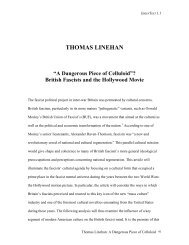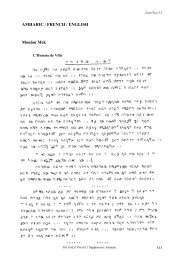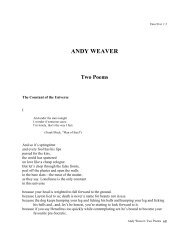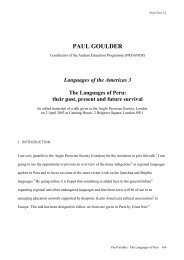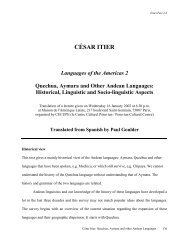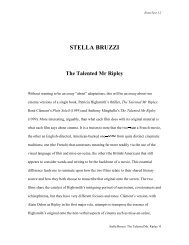Thomas Lamarre: An Introduction to Otaku Movement - Arts @ Brunel
Thomas Lamarre: An Introduction to Otaku Movement - Arts @ Brunel
Thomas Lamarre: An Introduction to Otaku Movement - Arts @ Brunel
You also want an ePaper? Increase the reach of your titles
YUMPU automatically turns print PDFs into web optimized ePapers that Google loves.
EnterText 4.1<br />
activity of so-called otaku, seems <strong>to</strong> precede the corporate regulation, standardisation and<br />
homogenisation of the market. On the one hand, this “otaku movement” of anime images<br />
seems <strong>to</strong> spur or facilitate the emergence of official markets. Tobin argues, for instance,<br />
that “these informal and in some instances illegal routes of introducing Pokémon and<br />
other Japanese cultural products abroad did more <strong>to</strong> facilitate than <strong>to</strong> interfere with<br />
Nintendo’s global marketing mission.” 4 Yet, on the other hand, otaku seem <strong>to</strong> remain<br />
somehow au<strong>to</strong>nomous of the official markets and corporate regulation. Tobin also<br />
suggests that “otaku are <strong>to</strong>o loyal and <strong>to</strong>o satisfied <strong>to</strong> suit the pace of contemporary<br />
capitalist corporations that depend on consumer restlessness, boredom, and<br />
disappointment.” 5 Oddly, otaku activities seem both <strong>to</strong> expedite and <strong>to</strong> slow corporate-<br />
controlled movement of anime around the world. They provide the (dimensionless) point<br />
where global markets coalesce and disperse, where they accelerate, gaining or losing<br />
speed. <strong>Otaku</strong> movement comes before official networks, yet the official networks do not<br />
subsume it. Even if the official networks leave otaku activities behind them, otaku<br />
activities persist in their own particular ways. The relation between otaku movement and<br />
corporate markets is not one of mutual reciprocity. While the two seem always <strong>to</strong> occur<br />
in conjunction, the one does not simply reflect the other.<br />
In this respect, otaku activities recall Negri’s theorisation of labour power, which<br />
is also central <strong>to</strong> Hardt and Negri’s critique of Empire. For Negri, prior <strong>to</strong> capital’s<br />
abstract quantification and rationalisation of labour, there is living labour with<br />
on<strong>to</strong>logical force. “Labour power is both heteronomous and au<strong>to</strong>nomous, object and<br />
subject; it is made (as labour), but it makes (as power).” 6 Capitalism relies on labour<br />
power. It must harness the power of labour <strong>to</strong> achieve its ends but can never control it<br />
<strong>Thomas</strong> <strong>Lamarre</strong>: <strong>Otaku</strong> <strong>Movement</strong> 152



